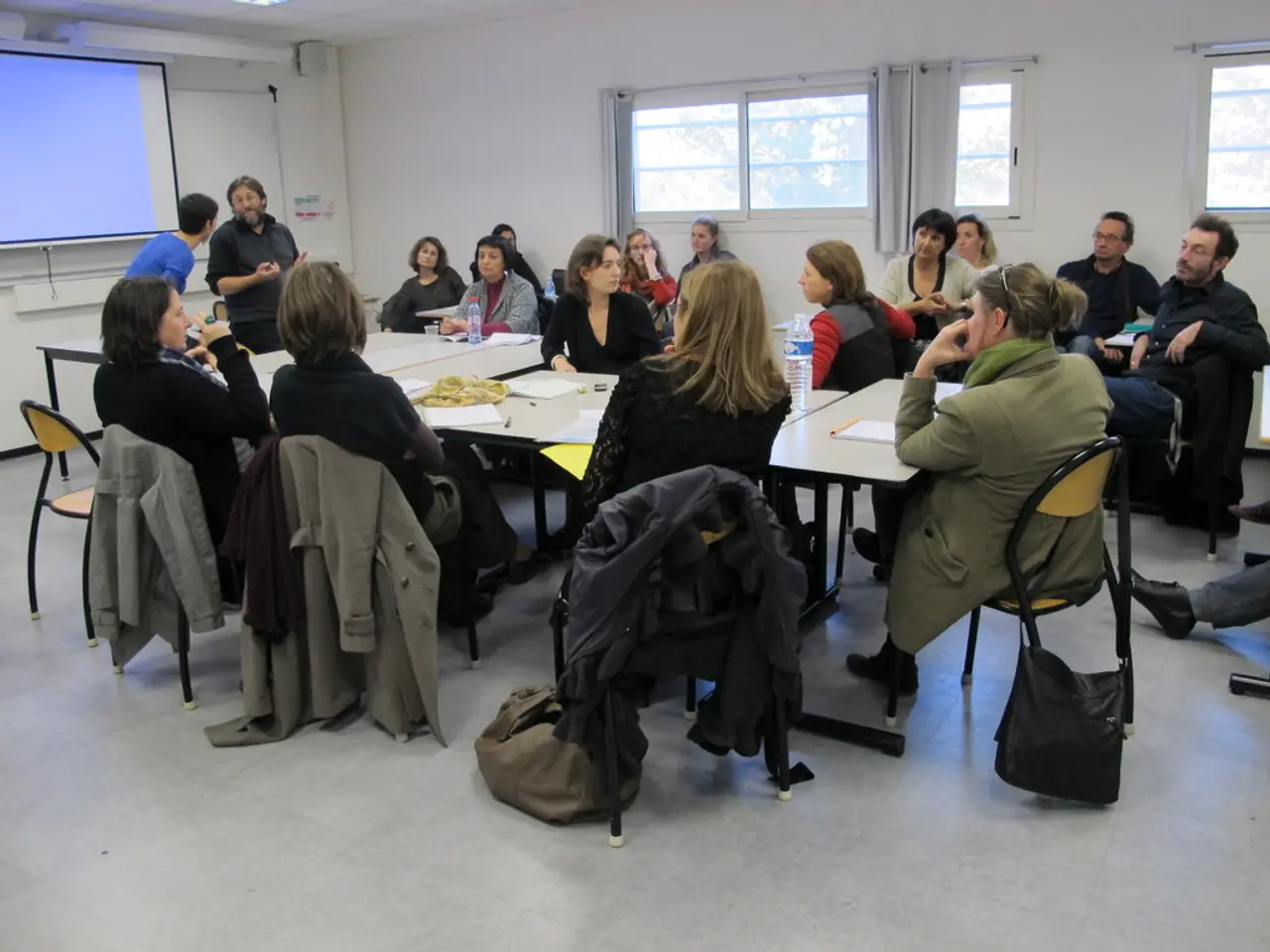Navigating the Burden of Being the Only Representative Friend
In friend groups, the experience of being a 'token' friend can have a profound impact on an individual's mental health. Tokenism, which values a person's identity over who they are as a person or friend, can lead to feelings of isolation, marginalization, and pressure to conform to dominant norms. This article explores the negative effects of tokenism and offers strategies to cope and maintain mental well-being.
Tokenism can create a sense of being 'othered', where an individual may feel that they are only present to fulfill diversity roles rather than being genuinely valued. This internal conflict can impact self-esteem, trigger feelings of exhaustion, and increase stress or anxiety symptoms. For example, racial minorities or migrants might feel pressured to assimilate or meet certain cultural expectations to be accepted, resulting in psychological distress and higher rates of anxiety and depression.
To combat these negative effects, setting clear boundaries is essential. Articulating personal limits about inclusion in conversations or activities helps reduce exploitation of one’s identity as a token. Building authentic relationships where mutual respect and genuine interest supersede superficial diversity can also mitigate feelings of being 'othered'. Engaging in self-advocacy, expressing needs, and calling out tokenistic behavior constructively can empower individuals and challenge harmful dynamics.
Connecting with groups or networks that share similar lived experiences can provide validation and reduce isolation. Joining cultural organizations, disability advocacy groups, queer spaces, or online communities can offer mutual care, respect, understanding, and value. Seeking supportive communities can be a lifeline for those struggling with tokenism.
Practicing self-care is another crucial strategy for managing the psychological effects of tokenism. Mental health maintenance activities such as therapy, mindfulness, or rest support resilience against tokenism’s impact. Healing from tokenism means finding a space and circle where one feels valued as a whole person, not one who is constantly on display or expected to educate others about their community.
Critically reflecting on and resisting internalized oppressive norms that perpetuate tokenism can help individuals reclaim agency within social groups. Discussing concerns about being a token friend with friends might open the door to finding growth and deepening connections. Code-switching, or altering appearance, language, or behavior to fit in, is exhausting and can lead to self-doubt. It's important to remember that one deserves to have real friendships that honor one's identity, not ones that exploit and use one.
In conclusion, tokenism in friend groups can significantly harm mental health by fostering isolation and identity conflict, but coping strategies focused on boundary-setting, authentic connection, self-advocacy, and support can help individuals manage its effects. By seeking out supportive communities, practicing self-care, and challenging harmful dynamics, it's possible to find a space where one feels valued as a whole person.
[References] [1] Sue, D. W., & Sue, D. (2015). Counseling the culturally diverse: Theory and practice. John Wiley & Sons. [2] Gallardo-Cooper, M. L., & Gallardo-Cooper, C. (2018). Multicultural counseling: Theory and practice. Sage Publications. [3] Atkinson, P., Smith, E. J., & Thompson, M. (2007). Multicultural counseling in practice: The ethnic, racial, and cultural dimensions of helping. John Wiley & Sons. [4] Our website offers online therapy as a first step toward finding the relationships one craves in life. [5] Frost, P. J., & Meyerson, D. (2017). Diversity's discontents: Overcoming unfounded fears and building inclusive organizations. Harvard Business Review Press.
Read also:
- Thriving Weegerhof: SBV and locals leaned on eco-friendly endeavors prosper
- Discontent in Southeast Asia Regarding the Current State of Climate Funding
- Escalating Doctor Shortage Pushes to a Critical Point - Xavier University School of Medicine Aruba Increases Efforts to Address the Deficit
- Explore Emotional Freedom: Discovering the Advantages of Coaching on Unlocking Personal Progress







